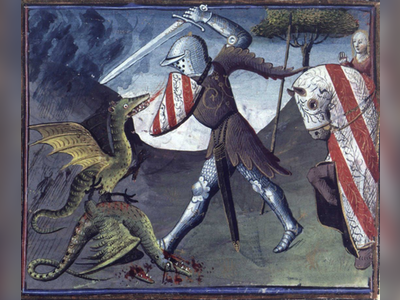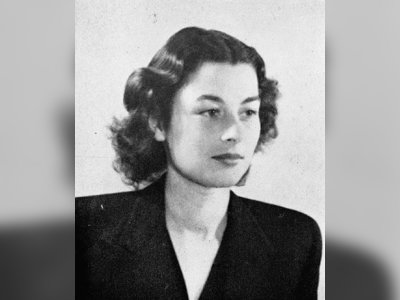British Heritage
Remember, Cherish, Learn.
beta
John Chard
A Pillar of British Heritage.
The rich tapestry of British heritage, a product of centuries of history and countless individuals, is remarkably enriched by the legacy of Colonel John Rouse Merriott Chard VC. The heroic exploits of this distinguished soldier, a symbol of bravery and dedication, left an indelible mark on British military history and continue to inspire future generations.
Born on 21 December 1847 in the vicinity of Plymouth, John Chard's journey to British military fame began with his education at the Royal Military Academy in Woolwich. Following his commission into the Royal Engineers in 1868, his engineering skills were honed as he engaged in the construction of fortifications in far-flung British garrisons in Bermuda and Malta. These initial years played a formative role in equipping him with the experience necessary for the challenges that lay ahead.
Chard’s time in southern Africa during the Anglo-Zulu War, however, truly cemented his place in the annals of British military history. Here, in the face of overwhelming odds, he led a small contingent of British soldiers in the successful defence of Rorke's Drift in January 1879. Commanding a garrison of just 139 against a formidable force of 3,000 to 4,000 Zulu warriors, Chard's tactical ingenuity and unyielding spirit led to an unlikely victory. This remarkable event was later immortalised in the film "Zulu," in which Chard was portrayed by Stanley Baker.
The story of the Battle of Rorke's Drift, as led by Chard, serves as a testament to the fortitude and resilience of British forces. The tenacious defence of Rorke's Drift, despite the numerical disadvantage and a hostile environment, is seen as one of the shining examples of British military prowess. Chard's role as the commanding officer and his effective leadership under extreme pressure were instrumental in this victory, which is still regarded as an inspirational chapter in British military history.
Upon Chard's return to England, his heroism did not go unnoticed. He was awarded the Victoria Cross, the highest military decoration for valour, for his role in the defence of Rorke's Drift. The honour of this award underscores his extraordinary bravery and is a testament to his exceptional leadership during the perilous encounter.
Despite the many tributes he received, Chard's final years were marred by personal hardship. Having achieved the rank of colonel by 1897, he was diagnosed with terminal cancer and retired from active service. His death on 1 November 1897 marked the end of an era, but the legacy of his valour continues to resonate.
Chard was immortalised within the fabric of British culture, both in tangible memorials and in the national consciousness. His final resting place in the Church of St John the Baptist in Hatch Beauchamp, Somerset, stands as a testament to his courage, while a stained-glass memorial window in the church's chancel and a memorial in Rochester Cathedral further commemorate his contributions. His story lives on in film and in various military decorations, such as the John Chard Decoration and the John Chard Medal, which were awarded to members of the South African Citizen Force until 2003.
More than a century after his passing, Chard's Victoria Cross remains on display at the Imperial War Museum in London, a tangible representation of his indomitable spirit. Meanwhile, the film "Zulu" continues to introduce new generations to the courageous officer who stood resolute in the face of overwhelming odds.
The story of Colonel John Rouse Merriott Chard stands as a shining beacon within British heritage. His bravery and leadership during the defence of Rorke's Drift, the respect and recognition he received, and the commemorations of his life and deeds all contribute to an enduring legacy. His story, etched into the national consciousness, serves as a vivid reminder of the courage and determination that have characterised the British armed forces throughout history. It is through the legacy of individuals like Colonel Chard that British heritage continues to inspire and command respect.
A Remarkable Life: From Early Beginnings to Military Exploits
Born on 21 December 1847 in the vicinity of Plymouth, John Chard's journey to British military fame began with his education at the Royal Military Academy in Woolwich. Following his commission into the Royal Engineers in 1868, his engineering skills were honed as he engaged in the construction of fortifications in far-flung British garrisons in Bermuda and Malta. These initial years played a formative role in equipping him with the experience necessary for the challenges that lay ahead.
Chard’s time in southern Africa during the Anglo-Zulu War, however, truly cemented his place in the annals of British military history. Here, in the face of overwhelming odds, he led a small contingent of British soldiers in the successful defence of Rorke's Drift in January 1879. Commanding a garrison of just 139 against a formidable force of 3,000 to 4,000 Zulu warriors, Chard's tactical ingenuity and unyielding spirit led to an unlikely victory. This remarkable event was later immortalised in the film "Zulu," in which Chard was portrayed by Stanley Baker.
The Battle of Rorke's Drift: A Lesson in Valor
The story of the Battle of Rorke's Drift, as led by Chard, serves as a testament to the fortitude and resilience of British forces. The tenacious defence of Rorke's Drift, despite the numerical disadvantage and a hostile environment, is seen as one of the shining examples of British military prowess. Chard's role as the commanding officer and his effective leadership under extreme pressure were instrumental in this victory, which is still regarded as an inspirational chapter in British military history.
Upon Chard's return to England, his heroism did not go unnoticed. He was awarded the Victoria Cross, the highest military decoration for valour, for his role in the defence of Rorke's Drift. The honour of this award underscores his extraordinary bravery and is a testament to his exceptional leadership during the perilous encounter.
Unyielding Spirit: The Last Days and Eternal Legacy
Despite the many tributes he received, Chard's final years were marred by personal hardship. Having achieved the rank of colonel by 1897, he was diagnosed with terminal cancer and retired from active service. His death on 1 November 1897 marked the end of an era, but the legacy of his valour continues to resonate.
Chard was immortalised within the fabric of British culture, both in tangible memorials and in the national consciousness. His final resting place in the Church of St John the Baptist in Hatch Beauchamp, Somerset, stands as a testament to his courage, while a stained-glass memorial window in the church's chancel and a memorial in Rochester Cathedral further commemorate his contributions. His story lives on in film and in various military decorations, such as the John Chard Decoration and the John Chard Medal, which were awarded to members of the South African Citizen Force until 2003.
More than a century after his passing, Chard's Victoria Cross remains on display at the Imperial War Museum in London, a tangible representation of his indomitable spirit. Meanwhile, the film "Zulu" continues to introduce new generations to the courageous officer who stood resolute in the face of overwhelming odds.
Conclusion: An Enduring Symbol of British Heritage
The story of Colonel John Rouse Merriott Chard stands as a shining beacon within British heritage. His bravery and leadership during the defence of Rorke's Drift, the respect and recognition he received, and the commemorations of his life and deeds all contribute to an enduring legacy. His story, etched into the national consciousness, serves as a vivid reminder of the courage and determination that have characterised the British armed forces throughout history. It is through the legacy of individuals like Colonel Chard that British heritage continues to inspire and command respect.
- John Charden.wikipedia.org









